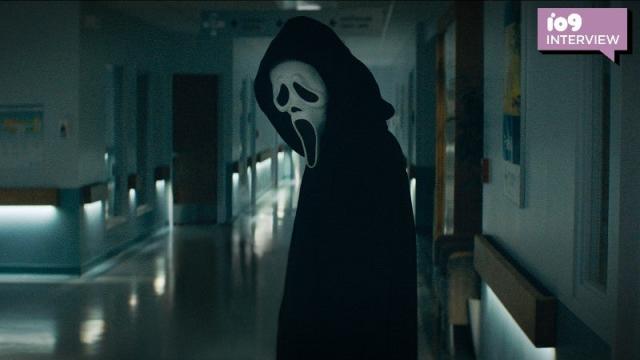A movie about killing is scary enough. A movie that could actually kill you is something else entirely. And yet, that’s the fear the new Scream movie is facing when it hits theatres Friday. While film fans returned to theatres in droves last month for Spider-Man: No Way Home, the omicron variant of covid-19 might keep them home this time around — and the directors of Scream, the numberless fifth film in the franchise, understand.
“Our big thing is if you feel safe and you can go see the movie by all means, go see it when and however you feel the safest,” co-director Matt Bettinelli-Olpin told Gizmodo over the phone last week. “We hope that we made a movie that you can enjoy, however is right for you, at the end of the day. But we definitely designed this movie to be ‘Sit with a big group of people, laugh, cry, scream, have a fucking good time.’”
Bettinelli-Olpin is part of a filmmaking team that calls themselves Radio Silence and on Scream, he and Tyler Gillett co-directed while their partner Chad Villella executive produced. Previously, the group made the horror hit Ready or Not and they fully admit that was sort of their attitude on Scream. Ready or not, they were going to do the impossible and make the fifth film in a hugely popular franchise, which had previously only been directed by one of the best horror directors ever, Wes Craven.
In Gizmodo’s interview with all three members of Radio Silence, we discussed the omicron variant and the pressure they felt coming into the franchise, as well as several much more upbeat topics such as making a whodunitit rewatchable, weaving the meta Stab movies into the film, keeping the identity of the Ghostface killer a secret on (and off) screen, and how this fifth Scream continues the tradition of being a self-aware, smart dissection of modern Hollywood and film culture. Read all that and more in our non-spoiler interview below.
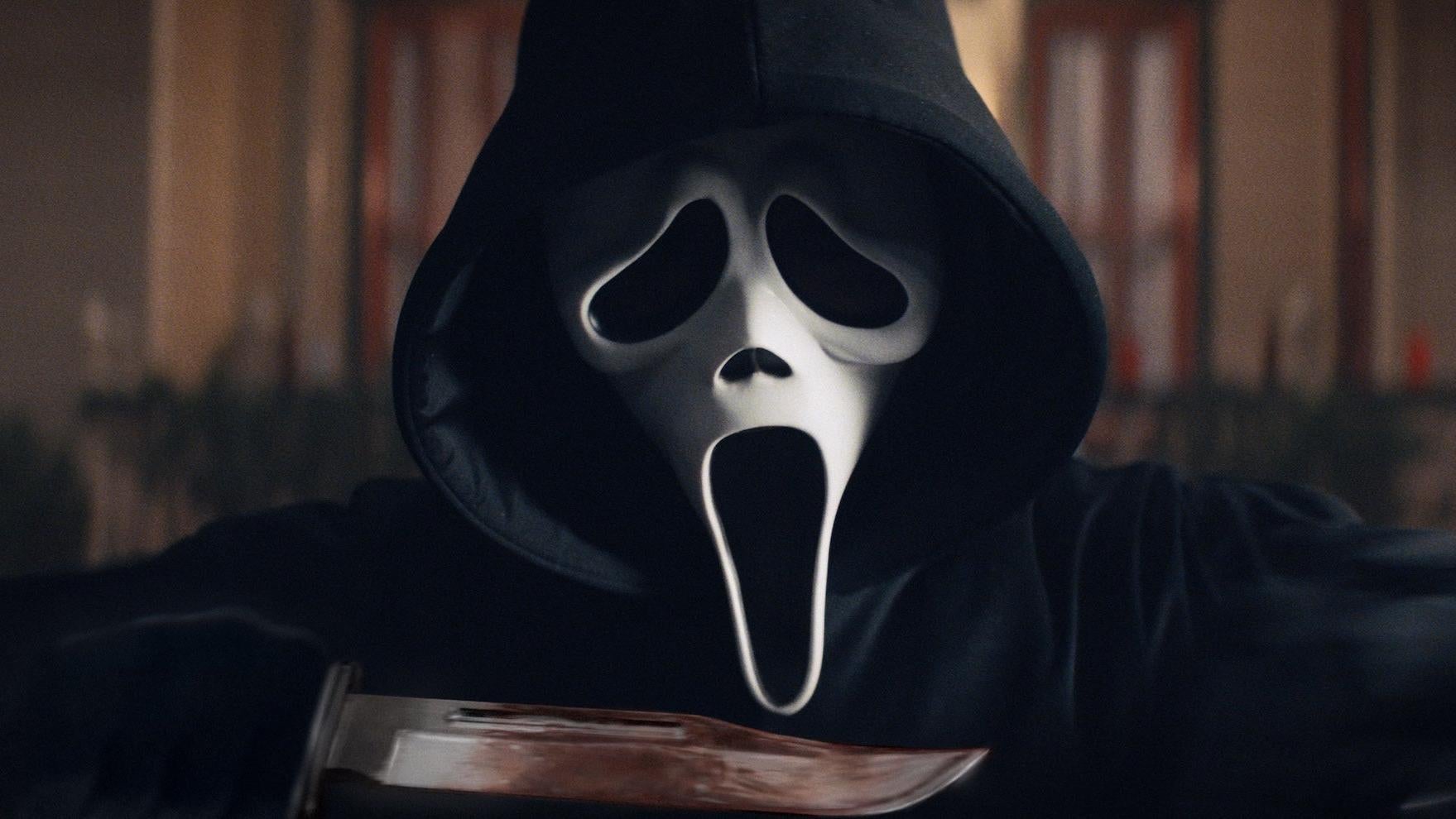
Germain Lussier, Gizmodo: What was more intimidating coming into this — continuing the Scream franchise or picking up the reins from Wes Craven himself?
Tyler Gillett: It was a bit both for us, I think. I would say equal parts both. I think certainly picking up the reins. But, we knew this before we were ever involved in the project, but certainly after coming on board have felt it every everyday since, just how huge of an influence Wes and his work was in our lives as fans and as creators. So there was this really wild intersection of knowing that there was a ton of responsibility to create something that was unique and original and pushed this franchise forward. But at the same time, as creators who are so influenced by his work, that we were essentially making a fan film. That we were the voice of Wes in so many ways. So it was a really wild experience and a really meta experience, the making of this movie. To arrive at this moment where we are taking the reins from someone who has had an influence in our lives that, it’s hard to even describe how deep that influence goes.
Gizmodo: You did have [franchise creator, producer, and writer] Kevin Williamson on board though. What was the most valuable thing about having having him around, whether it was on set or just as a resource?
Chad Villella: I think it initially started with getting his blessing that we’re making another Scream. Obviously he had his own experience making the first four and when we wanted to bring this one back to life through Project X and Spyglass, getting Kevin on board was a major major element in getting us on board because we wanted to do it right by Kevin. So that was the first thing. And then the second thing was when he was on set, for even a little bit, just hearing his stories about the way things were made during the first one and his experiences and just getting his insight, it was kind of a surreal experience having him there while we are going back to Woodsboro.
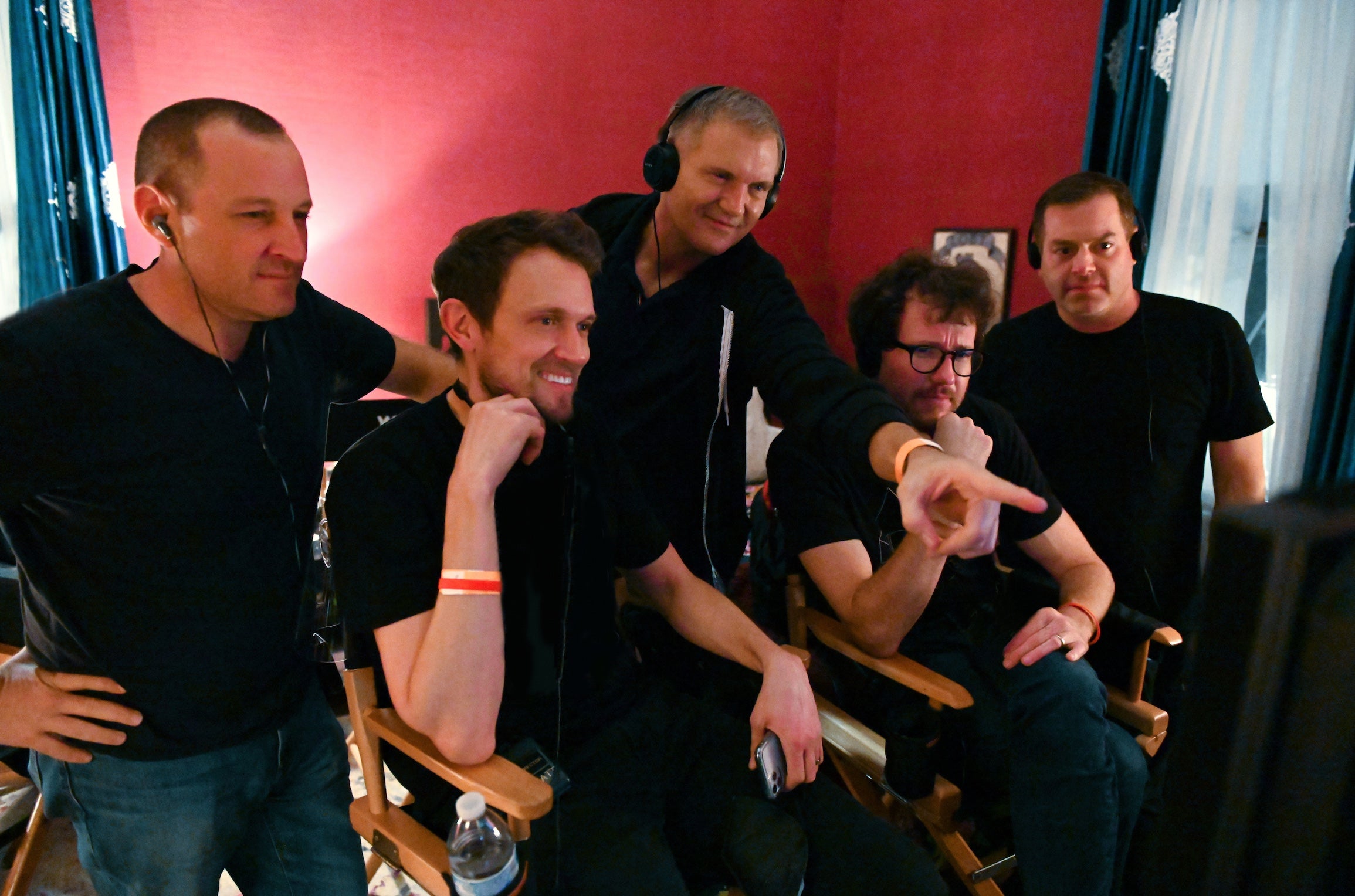
Gizmodo: Now, I think Scream as a franchise is always good, but I also think it’s just that much better if you’re a film nerd and you can pick up on every little reference. This film is the same way and it’s even film-literate for the modern age, dealing with how things have changed since Scream 4, talking legacy sequels, elevated horror, and other things. So what were the conversations like about how to keep the franchise fresh for modern film fans, not just in the script, but on screen?
Matt Bettinelli-Olpin: It’s a really good question. It is something we were conscious of throughout the process and like you said, so much of it was just baked into the script and it was kind of a driving force when [James Vanderbilt and Guy Busick] were writing it. And then throughout production and through post we kept it as one of our north stars in terms of making sure that we’re doing the franchise justice, because they did it so successfully in those first four, you know? I think people are finally now starting to realise how ahead of its time Scream 4 was.
Gizmodo: Yes. [I even wrote a whole article about it!]
Bettinelli-Olpin: We wanted to make sure that this one didn’t fall short and that it lived up to those expectations. And, you know, one of the most fun aspects of that as film nerds, you get to go into this movie where you’re making a movie, right? That’s incredible. We pinch ourselves every day. And then we also get to enjoy the process and we get to make sure that as much of what it means to be a film fan [as possible] gets filtered into the movie. I think it comes through in tangible ways that are obvious when you watch the movie. I think it also comes through in some intangible ways. I mean the thing we keep saying is that we, in a lot of ways, made a fan film. It’s like our fan film version of Scream at the end of the day and that to us was just really special. Especially when you’ve seen the movie and you know the inner workings of what’s happening.
Gillett: And I would just add to that that horror movies are in a different place now than they were when the first Scream came out, right? While definitely there is dialogue and there are references in this movie that are very film-literate references, it does feel like some of the broader ideas, they are much more… there’s more of a cultural awareness of what’s happening in the genre and how things are defined and how things are categorised. And so it was also really fun knowing just where we’re at, sort of in a pop culture sense where the genre is at, and the awareness of what the genre is. There are a lot of really fun corners to explore, just given how the literacy of the film going audience and fans has changed over the years.
Villella: I mean, in the first Scream the sheriff asks Billy Loomis, “What’s a teenager like you doing with a cellular phone?” So things have definitely changed a lot since then.
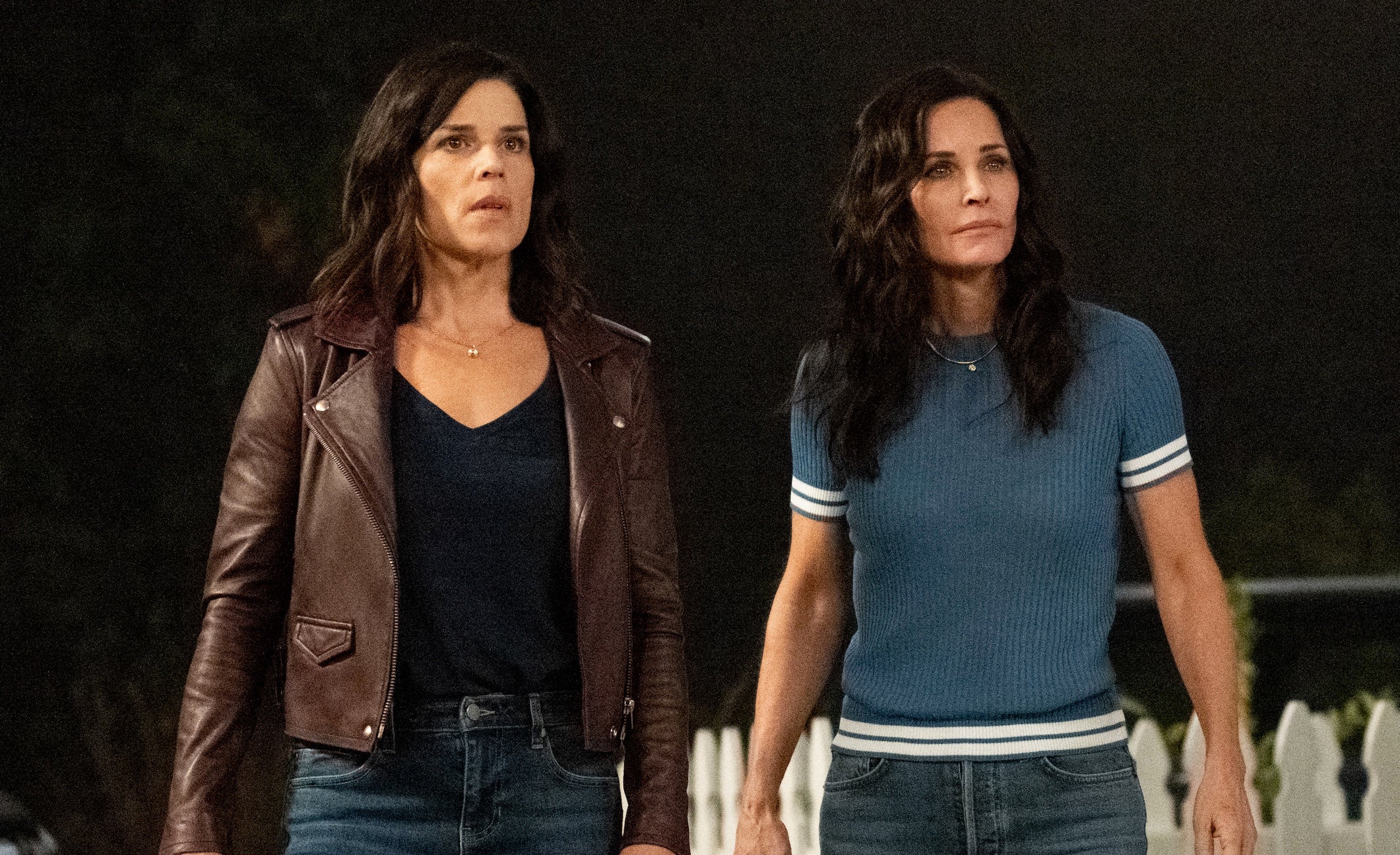
Gizmodo: Yes they have. Now, in the press notes, it says that the script was pretty much done when you guys came on board, and that’s sort of what sold you on it. Exactly how done was the script when you guys came on board and how much input did you have on the story, if at all, before filming?
Gillett: Yeah, that’s accurate. What you see on screen is really close to what the original script was. The main changes that happened are the changes that happen with every film over the course of pre-production, where you show up and you have to start making choices — because the reality of making the movie is now a huge part of the equation and there are just things that have to change on a production sense for you to actually complete the project. But the larger idea of the characters, all of that stuff was was really in place. I think it’s safe to say that we probably will never read another script in in our career that was as tight and as just sort of fully realised as this script was. I mean it was truly one of the most memorable experiences of our lives sitting and reading the script for the first time. Honestly it was like watching the movie. It was really, really, incredibly well-written.
Gizmodo: That’s awesome. Now, a movie like this has to work, not just the first time when you don’t know who the killer is, but upon rewatches when you do. So, what are some ways that you guys made sure that works — and how much care is put into making sure the killer’s identity makes sense when you watch it a second time and a third time?
Bettinelli-Olpin: That, what you’re talking about, is one of the most important parts of this movie specifically and also everything we’ve ever made. We just think it’s so important to make a movie that you want to watch over and over. The initial experience should be its own thing. Then for the rest of your life, if you like the movie, you got to live with it in a different way, right? And all of our favourite movies are movies that we just want to watch over and over. I know this is true for everybody, right? And so our job, especially on this one, was how do we make this movie that? How do we make this a movie that you just want to watch again and again? And a big part of that was, beyond the basics — of course make sure it’s good, make sure it makes sense, make sure it holds up under the pressure of a rewatch or a tenth watch — but it was also to make sure that the stuff that we put in… it kind of comes down to taste at the end of the day, right? Because it’s got to be entertaining and it’s got to be emotional and it’s got to be scary, and it’s got to work in the same way that the original Scream does, which I think we’ve all seen, you know, hundreds of times now, and it never loses its impact. And trying to figure out why that is, what that is, what those pieces of that puzzle are, was a huge part of our job on this.
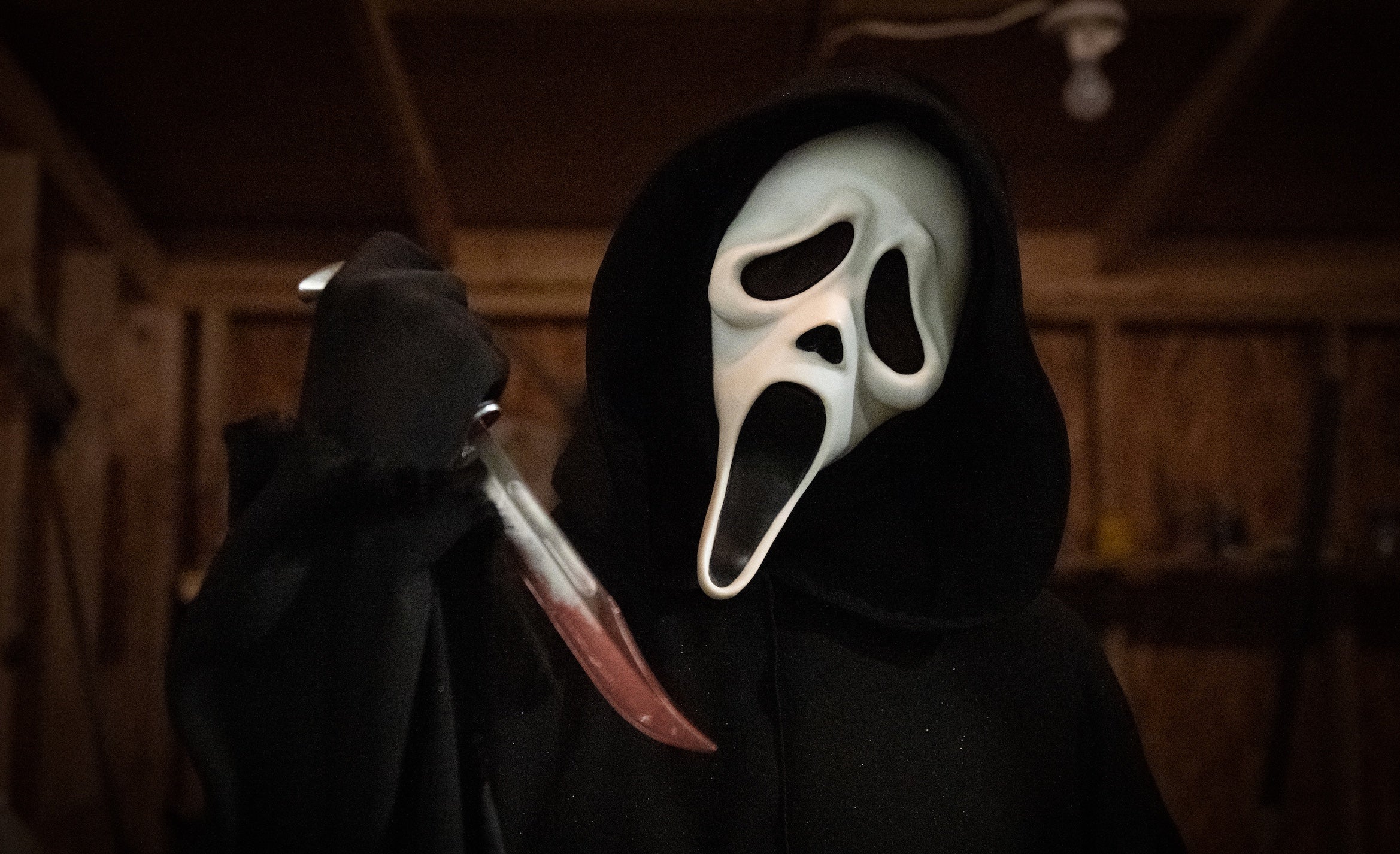
Gizmodo: And what about the logistics of the identity of the killer? How much work do you do to make sure it makes sense?
Gillett: Yeah, tons. I mean…
Villella: Maybe more than anything, right?
Gillett: Yeah, I think so.
Villella: The main focus of the edit on this was how are steering perception at every moment.
Bettinelli-Olpin: And one of the things that we learned too was, you know, if you listen to the commentary on the first one, Kevin and Wes Craven have this great conversation about how they’re guiding the audience through who is the most guilty at any given time. And that was something that we really grabbed on to. And then when we were shooting, we would have actors do takes where they’re guilty and where they’re not guilty. But in the edit, we would have the ability to fine tune that, you know, and really, like, lead the audience where we want them to go in terms of the whodunit of it all.
Gillett: Yeah, I think one of the things that’s very specific to Scream — and really to a lot of whodunits, but that was really key for us and really integral for us as a guiding principle — was that these are movies about an ensemble where everyone is guilty, and then at some point, and usually by the process of elimination, you realise who is actually guilty. But it’s not about a bunch of innocent characters and one of them is is a killer. It’s about a bunch of killers and then you’re going to find out who the actual killer is. And that’s that’s just a really, really fun world to live in.
Villella: It’s the Randy line in the original. [”Everyone’s a suspect.”]
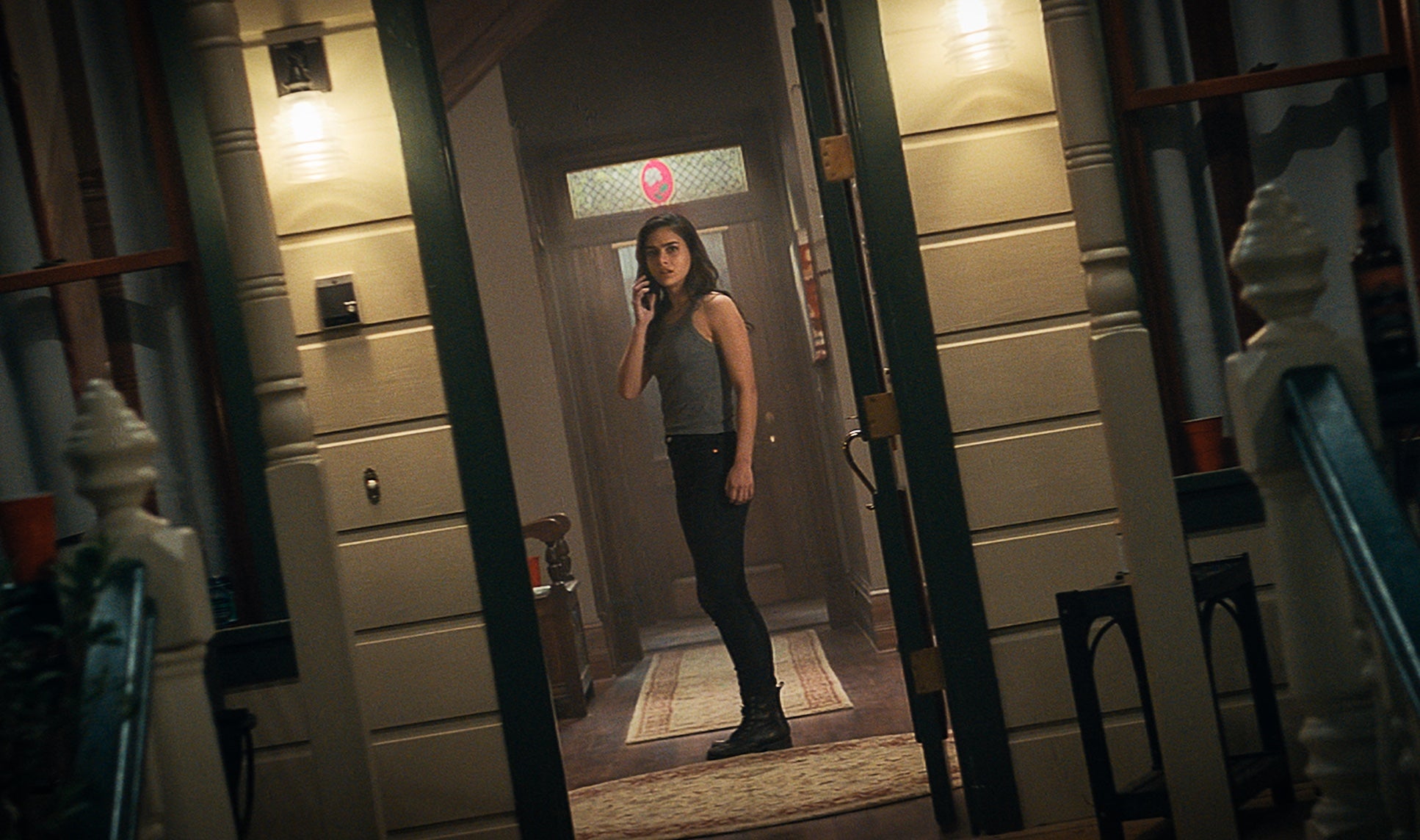
Gizmodo: Oh, of course. Now, again, I read that when the script was being sent around around to agents and managers, there were fake endings attached. Is that true, was that the extent of the secrecy or were other measures taken during production to keep the film’s ending safe?
Gillett: Yeah, we did alternate endings.
Bettinelli-Olpin: A lot of the scripts that got sent out didn’t even have the ending.
Gillett: Yeah we omitted the ending, for a lot of the cast too.
Bettinelli-Olpin: Yeah, I don’t think a lot of the cast read the full script until they were in the movie, right? I could be slightly wrong on that. But for the most part, we wouldn’t sent out the full script and then in the edit, we would cut slightly different scenes and the stuff we share with people… we took all the possible and necessary precautions, you know? And, I mean, we’re a week out and we’re doing all right. Knock on wood.
Gizmodo: One of the things I love about the Scream franchise is in the second one we start to get the Stab movies. This movie reveals the Stab movies have continued even since Scream 4, so did you talk about what happens in all of those Stab movies or what your Scream might look like as a Stab movie?
Gillett: Yeah, actually, we talked about that a lot. You see it in the background of several shots at the Meeks-Martin house [the house of the twin characters played by Mason Gooding and Jasmin Savoy Brown], but there is a box set of Stab movies on the mantle that does answer this question. And we actually shot a lot of fun Stab 8 stuff that just ultimately for various reasons, didn’t end up in the cut.
Villella: I wish we could put it [out].
Gillett: But yeah, we designed some pretty wild and pretty wacky Stab 8 moments that maybe will appear on a digital release at some point. But we really love that there is a sort of off-screen world that exists with these movies, right? It’s one of the ways that they kind of blend our reality with the movie reality and it’s always really fun. It was fun to have a space to maybe do the weird, campy thing that didn’t necessarily feel like was a Scream movie idea, but still was fun enough to be shot and be a part of the universe of these movies. And that’s really what Stab is, right? It’s a kind of release valve for some of those crazier “bad choices.”
Bettinelli-Olpin: I also think the Stab movies do such a great job of giving permission to the audience to kind of go along with the Scream movie. Because, you know, sometimes you hear people talk about Stab and how insensitive it would be to actually do Stab. And that’s all very true. But I think that’s part of the buy in, right? It reminds you “Oh, these are fun movies.” It has to be an entertaining, fun ride. And I think there’s a real value in that.
Gillett: The movies are already self-critical, but there is a movie within the movie that is also making fun of the movies. It’s such a fun way that the movies inoculate themselves from that level of criticism in some way.
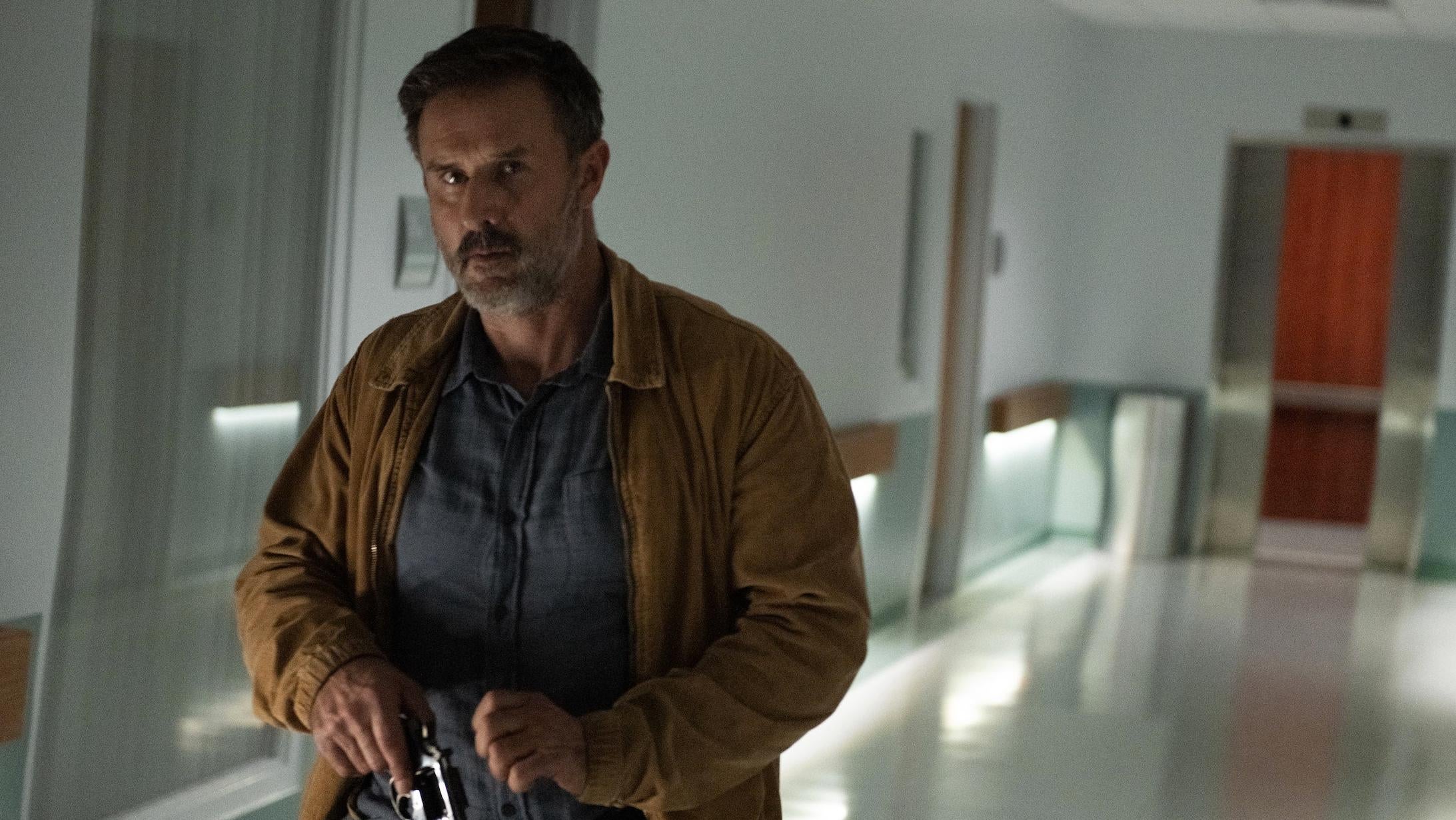
Gizmodo: So I have one more question. Actually I have a million more questions, but I only have time for one more. Obviously, this movie is coming out at a weird time. Spider-Man just had this massive opening, but now the omicron variant is everywhere and I see a lot of fans online, as I’m sure you guys do, who really want to see this, but they’re scared, both of being spoiled and for their health. So what would you guys say to fans who want to see your movie but might be scared to go see it because it’s in theatres only?
Bettinelli-Olpin: Yeah. You know for us, we designed this movie as a theatrical experience to hopefully share with a group of people, right? That’s also why we chose the date way past what we’d thought we’d be out of this pandemic by. And our big thing is if you feel safe and you can go see the movie by all means, go see it when and however you feel the safest. We hope that we made a movie that you can enjoy, however is right for you at the end of the day. But we definitely designed this movie to be, “Sit with a big group of people. Laugh, cry, scream, have a fucking good time.”
Scream is in theatres Friday and will hit Paramount+ 45 days after that.
Editor’s Note: Release dates within this article are based in the U.S., but will be updated with local Australian dates as soon as we know more.
